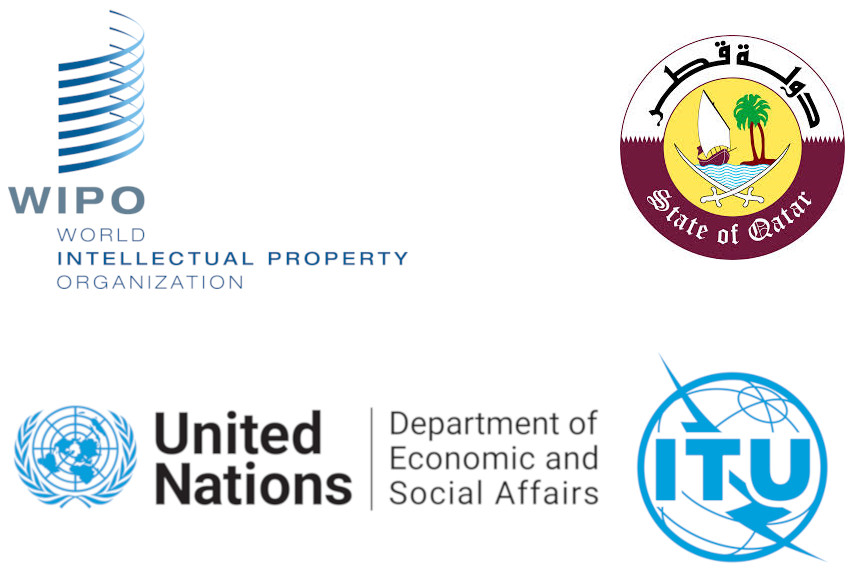International Day of Persons with Disabilities - Reducing Inequalities Through Technologies: A Perspective on Disability Inclusive Development
International Telecommunication Union / World Intellectual Property Organization / United Nations Department for Economic and Social Affairs
Session 112
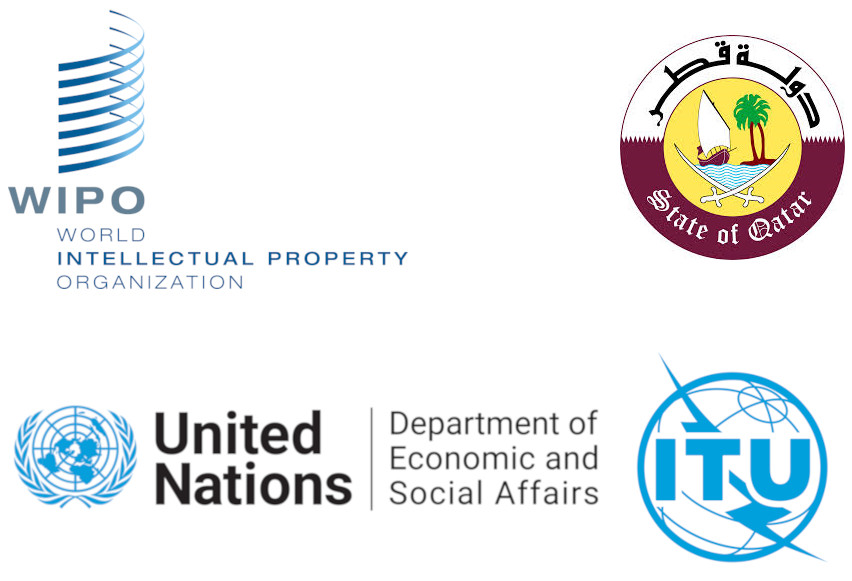
One billion persons with some form of disability can benefit from assistive technologies that can facilitate their social, economic and political engagement, including their participation in decision-making processes that affect their lives and ambitions for sustainable development. Persons with physical, sensory, cognitive/learning or invisible disabilities represent nearly 15% of the world population with a higher prevalence in developing countries. The number of persons with a disability is expected to reach 2 billion by 2050.[1]
Accessibility and usability are increasingly enabled by technology and innovation. The Convention on the Rights of Persons with Disabilities (CRPD) adopted in 2006, acknowledged this reality by recognizing access to assistive technologies as a human right. Inclusion and accessibility for persons with disabilities is also recognized in the 2030 Agenda for Sustainable Development and its Sustainable Development Goals (SDGs), including in relation to poverty reduction (SDG 1), education (SDG 4), growth and employment (SDG 8), reducing inequalities (SDG 10), and sustainable cities and human settlement (SDG 11). Underpinning all the Sustainable Development Goals, science, technology and innovation play a crucial role in supporting disability inclusive sustainable development, and in ensuring that no one is left behind. The Covid-19 pandemic has shone light on additional challenges for persons with disabilities and revealed how critical technologies and accessibility are to mitigating impacts and building resilience during such unprecedented times.
For some kinds of disabilities, assistive devices/technologies are key “equalizers” that promote inclusion and full participation in all industries and dimensions of life from education to employment, to leisure, culture, travel, sport, media, politics, to name a few. In all these sectors there are also persons with disabilities in positions of leadership. For many, assistive technologies are powerful enablers facilitating their performance. Ranging from simple devices, such as a walking stick or reading glasses, to more complex technologies such as assistive robots or gesture or emotion recognition software, assistive technologies are not just game changers for persons with disabilities but, with an increasingly ageing population, many older persons can also benefit from these technologies. Indeed, many innovations initially designed for persons with specific needs have been adapted for use in larger markets through a wider array of new consumer goods to address either human limitations affected by older age, or global population needs and applications, including in communication, health, lifestyle and entertainment. Assistive technologies are an important complement to universal design, designing products and built environments so that they are aesthetic, accessible and useable to the greatest extent by everyone.
Nevertheless, the development of assistive technologies is a complex process that relies on many factors. Of particular importance is the existence of an innovation ecosystem that incentivizes researchers, technologists, creators to find technical solutions to improve the lives of persons with disabilities and/or older persons, and to attract the necessary investments for the technological breakthroughs not just to happen but also to be brought to the end user. Key to such innovation ecosystem is Intellectual Property. IP provides an incentive structure for creativity, technologies and innovation to see the day and in doing so enable the growth of the assistive technologies industry.
Given the critical importance of this industry and its contribution to supporting inclusive societies, the World Intellectual Property Organization (WIPO) dedicated this year’s flagship publication Technology Trends to the topic of Assistive Technology. The report identifies innovation in well-established assistive products, such as autonomous wheelchairs, hearing aids and wearables monitoring health and emotion that alleviate the impact of human limitations, as well as emerging and cutting-edge solutions, exploring how close the latter ones are to commercialization, and other factors that play a role in them entering the market. The report also makes available interactive dashboards on conventional and emerging assistive technologies, allowing stakeholders to look at specific information of interest – such as top patent applicants and access related patent documents - and emerging assistive technology readiness radar. WIPO´s work intends to contribute to the creation of a knowledge basis on the IP landscape that applies to this field of technology and support informed discussions and decision-making on this agenda.
The issue of accessible technologies for persons with disabilities and specific needs is also highlighted in the annual World Summit on the Information Society (WSIS) Forum. It is crucial that information and communication technologies (ICTs), including assistive technologies, be available, accessible, and affordable for all. WSIS and its stakeholders initiated a special track on ICTs and Accessibility for Persons with Disabilities and Specific Needs that provides space for discussions and constructive dialogues to mainstream accessibility in all the technologies. This special track covers a range of topics on innovative technologies for persons with disabilities to ensure inclusiveness and equality.
It is against this background and to mark the 2021 International Day of Persons with Disabilities held under the theme of “Leadership and participation of persons with disabilities toward an inclusive, accessible and sustainable post-COVID-19 world” that this event finds context. The event aims at increasing awareness of the importance of supporting innovation ecosystems to spur the development of new and improved assistive technologies; promote understanding of the workings of the assistive technologies industry; and share insights on the landscape and global trends in this cluster of technologies as a complement to universal design The event will also highlight select initiatives by members of the UN family to support informed discussions relating to the realization of the objectives of the CRPD and the 2030 Agenda for Sustainable Development.
This event is also held as part of the WSIS TalkX series and is closely linked to the WSIS Action Lines – where accessibility is a cross-cutting topic – and the Sustainable Development Goals.
[1] https://www.worldbank.org/en/topic/disability

Ambassador Al-Thani was appointed Permanent Representative of the State of Qatar to the United Nations in October 2013. An international though leader on human rights, social justice, rule of law, promotion of justice and international law, corruption prevention and sustainable development issues, Ambassador Al-Thani has authored and facilitated numerous ground-breaking General Assembly Resolutions dealing with issues such as international day to protect education from attack, the right to education in emergencies, autism, improving the effectiveness and coordination of military and civil defence assets for natural disaster response, the role of women judges, among others.
Since assuming her functions, she has played a key leadership role in numerous initiatives such as Chair for the 29th meeting of Sixth Committee and Chairperson of the Fiftieth Session of the Commission on Population and Development (2017). Ambassador Al-Thani has co-facilitated several critical processes, such as the Intergovernmental Negotiations on Security Council Reform (2021); the intergovernmental negotiations on the Declaration for the Commemoration of the Seventy-fifth Anniversary of the United Nations (2020); the General Assembly Resolution establishing the modalities for the 25th anniversary for the Beijing platform for action for women (2019); the Review of the Economic and social Council (ECOSOC) (2018); and the preparations for the high-level meeting to appraise the Global Plan of Action to Combat Trafficking in Persons (2017).
She has initiated several United Nations Group of Friends, and currently co-chairs the Group of Friends for Gender Parity, the Group of Friends of the Responsibility to Protect; the Group of Friends to Assist on the international, impartial and independent mechanism (IIIM) to assist in the investigation in crimes committed in Syria; the Group of Friends for Education and Lifelong Learning, and the Group of Friends of Solidarity for Global Health Security.
Between 2011 and 2013, Ambassador Al-Thani was Qatar’s Permanent Representative to the United Nations in Geneva, to the World Trade Organization (WTO) and General Consul of the State of Qatar to the Swiss Federation. During the same period, she represented Qatar in the UN Human Rights Council, the Executive Council of the World Health Organization (WHO), and the Executive Council of the International Labour Organization (ILO). She also held the prestigious post of President of the Social Forum of the Human Rights Council.
Ambassador Al-Thani sits on the boards of several international human rights and development organizations. She is the recipient of prestigious awards, including being selected as a Young Global Leader by the World Economic Forum Committee to improving the State of the World in 2013.
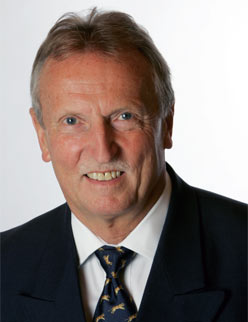
Mr. Malcolm Johnson, Deputy Secretary-General of ITU will deliver opening remarks.
Mr. Malcolm Johnson, is a seasoned information and communication technology (ICT) executive who has served in multiple senior management positions at ITU. Prior to serving as Deputy Secretary-General, he served as Director of ITU’s Telecommunication Standardization Bureau (TSB).
Before joining ITU, he was International Coordinator at the United Kingdom’s Office of Communications (Ofcom), where he had lead responsibility for the United Kingdom in ITU. He was Director of the United Kingdom’s Radiocommunications Agency and European Coordinator for ITU World Radiocommunication Conferences in 1993, 1995 and 1997.
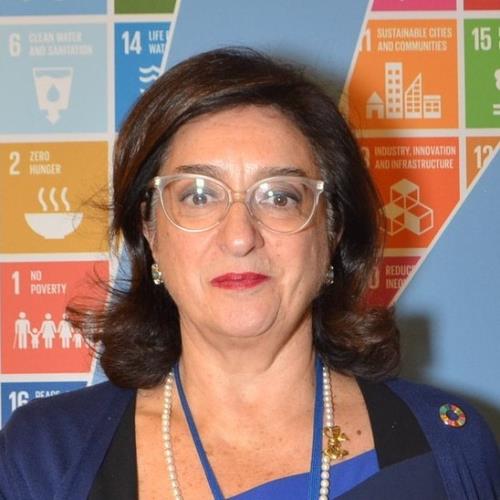
Maria-Francesca Spatolisano is the Assistant Secretary-General for Policy Coordination and Inter- Agency Affairs, UN DESA since March 2019. At the beginning of February 2021, she was also appointed Officer-in-Charge of the Office of the Secretary-General’s Envoy on Technology in her personal capacity.
Ms. Spatolisano has 35 years of experience in public service including extensive senior leadership in multilateral affairs. She has served as the European Union Ambassador to the OECD and UNESCO, Monaco and Andorra. She was a member of the EU Delegation to the United Nations, serving as the Head of its Economic and Trade Section, covering all issues related to trade, development and environmental policies in the Second Committee and ECOSOC; she also represented the EC to the Fifth Committee.
Before joining the UN, she was responsible for International Organizations and Development Dialogue with other Donors in the European Commission’s Directorate General for Development Cooperation. In this capacity, she has assured the EU presence and developed EU positions on development policy in several international fora including the United Nations, the World Bank and International Monetary Fund, OECD, G-7 and the G-20.
Ms. Spatolisano holds a Doctorate in Law from Florence University.
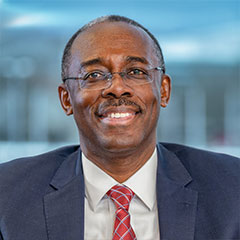
Edward Kwakwa is Assistant Director General, Global Challenges and Partnerships Sector, World Intellectual Property Organization (WIPO) in Geneva. He served as General Counsel at WIPO from 2004 until September 2016.
Kwakwa holds an LL.B. degree from the University of Ghana, an LL.M. from Queen’s University in Canada, and an LL.M. and a J.S.D. from Yale Law School in the U.S.A.
Before joining WIPO, Kwakwa practiced corporate and international trade law and investment with the law firm of O’Melveny and Myers in Washington, D.C., worked as International Legal Adviser at the Commission on Global Governance in Geneva, as Senior Legal Adviser at the Office of the United Nations High Commissioner for Refugees (UNHCR), and as Legal Affairs Officer at the World Trade Organization (WTO).
His publications include four books and numerous articles on international law.
He is currently serving as Vice-President of the African Foundation for International Law, Member of the Governing Council of Africa Legal Aid and Member of the Editorial Advisory Boards of the African Journal of International and Comparative Law and the International Organizations Law Review.
In September 2011, he was elected as an Associate Member of the Institut de Droit International, and became a full Member in September 2017. He served from 2001 to 2004 on the Executive Council of the American Society of International Law (ASIL), from 2012 to 2015 as Counselor of the ASIL, and as Vice President of the ASIL from 2015 to 2017.
He is Adjunct Professor of Law at the Graduate Institute of International and Development Studies in Geneva, and has been an Adjunct/Visiting Professor of Law at the Fletcher School of Law and Diplomacy, the University of Denver College of Law, and the University of Pretoria, South Africa, where he has been appointed as an Extraordinary Professor in Law.
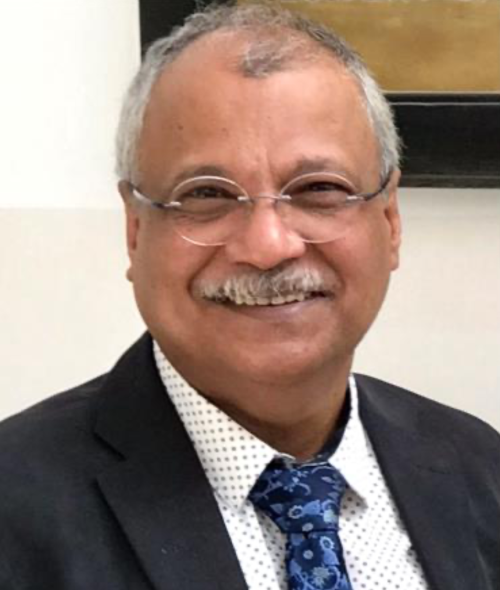
Chapal Khasnabis, a Prosthetics and Orthotics Engineer from India holding a Masters degree in Rehabilitation Science from Strathclyde University, UK and in the process of completing PHD from Trinity College, Dublin.
In 1979, started his career with the Ministry of Health and then Ministry of Social Welfare (Government of India).
In 1994, he founded Mobility India, Bangalore to enable, empower and include people with disabilities, everywhere.
Since 2003, he is working in the World Health Organization (WHO). He worked in 10 countries and his work took him to more than 100 countries.
In 2010, published WHO Community-Based Rehabilitation (CBR) Guidelines in partnership with the International Labour Organization; the United Nations Educational, Scientific and Cultural Organization; and the International Disability and Development Consortium.
In 2012, organized 1st CBR World Congress in Agra, India. Founded CBR Global Network and introduced the concept of the Community-Based Inclusive Development (CID).
Since 2014, he is leading the WHO’s Global Cooperation on Assistive Technology (GATE) initiative to improve access to assistive technology for everyone, everywhere.
In 2018, he facilitated formation of the Global Partnership for Assistive Technology: ATscale.
Currently managing activities of Access to Assistive Technology team and Medical Devices and Diagnostics team as Head (a.i) under the department of Health Policy and Standards.
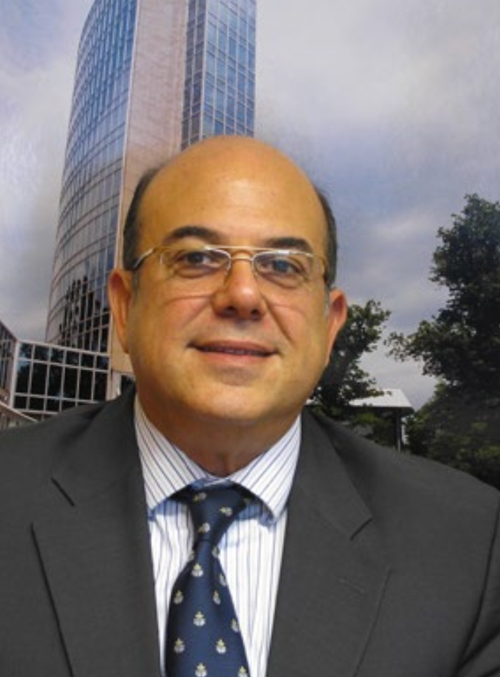
Alejandro ROCA CAMPAÑA has 30 years of professional experience in WIPO,18 of which were spent in the Development Sector and 12 in the Global Infrastructure Sector. He currently holds the position of Senior Director, IP for Innovators Department in the IP and Innovation Ecosystem Sector (IES) since March 2021.
The main responsibility of Mr. Roca Campana consists of advising and coordinating the programs related to capacity building for the development of institutional innovation ecosystems of universities, knowledge transfer organizations (including Technology and Innovation Support Centers – TISCs) and other research and development institutions to effectively use IP assets and to manage them from creation to the commercialization of products and services based on research outcomes. He is also responsible for the implementation of activities and projects to provide resources, tools and platforms to enable active local innovation support and for the coordination of national, regional and international networking to share experiences and best practices as effectively as possible.
In 1991, he joined WIPO in the Development Cooperation and External Relations Bureau for Latin America and the Caribbean (LAC Bureau). In this Office, he held the positions of Program Officer (1991-1993), Senior Program Officer (1993-1996), Senior Counselor (1996-2000), Deputy Director (2000-2002) and Director of the LAC Bureau (2002- 2009). During this period, Mr. Roca Campana was responsible for and coordinated and carried out all technical assistance programs related to capacity building, institutional modernization and the implementation of strategies for the development of intellectual property systems in the field of intellectual property (industrial property and copyright and related rights) at national and regional levels in Latin America and the Caribbean. From 2010 to 2020, he held the position of Senior Director, Innovation and Knowledge Infrastructure Department in the Global Infrastructure Sector (GIS) of WIPO, where he was responsible for the implementation of several development agenda projects in the framework of the WIPO Development Agenda.
He holds a university degree in Economics by the Moscow State Institute of International Relations, with a specialization in International Economic Relations. He also obtained a specialization Diploma as a patent agent at the Russian Central Institute for Advanced Learning in Intellectual Property of the USSR State Committee of Inventions and Discoveries. He was the Head of the International Cooperation Division, National Office for Inventions, Technical Information and Marks (ONIITEM) of Cuba from 1985 to 1991. In addition to Spanish-his mother tongue-, he speaks fluently English, French, Russian and Italian.
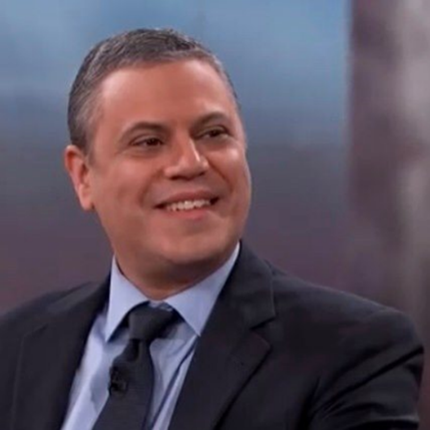
Dr. Bryan Wolynski is a primary care optometrist with an emphasis in low vision rehabilitation. He has provided eye care in many community based public health initiative programs including; low vision, eye care in homeless shelters, mobile based care at homes for people who are homebound and at schools for financially underprivileged children. He has spoken extensively on mobile eye care, low vision rehabilitation and technology. Dr. Wolynski currently consults as clinical and professional relations for OrCam Technologies.
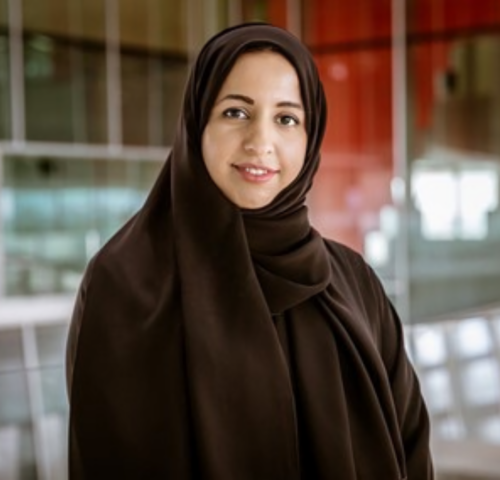
Dr. Dena Ahmed S. Al Thani is currently an Assistant Professor and the Director of Interdisciplinary Programs at the College of Science and Engineering at Hamad Bin Khalifa University, State of Qatar. Dr. Dena's research areas of interest are inclusive design, accessibility, Human-centered AI, and eHealth design. In 2016, Dr. Dena Al Thani was awarded her Ph.D. in Computer Science from Queen Mary University of London; her thesis is specialized in Human-Computer Interaction and inclusive design. Dr. Al-Thani is now actively publishing papers in high-ranked journals and international conferences, and book chapters. Dr. Dena is keen to see the impact of her research on inclusion research in Qatar and the world. She is a part-time consultant for Research and Innovation in Mada Assistive Technology Centre, where she works with the innovation team. Dr. Al-Thani actively participates as a keynote speaker and a panelist in key world forums, including the annual meeting of the UN council working group on internet policy issues, the UN Human Rights Social Forum, the Gulf Region Education and Assistive Technology Conference, the World Health Innovation Summit and the UN Committee on the Rights of Persons with Disabilities Conference of the States Parties.

Axel Leblois is the president of G3ict, the Global Initiative for Inclusive ICTs, a global advocacy organization founded in 2006 at the initiative of the United Nations Department of Social and Economic Affairs, the IT industry and organizations of persons with disabilities to promote the digital accessibility and assistive technologies dispositions of the Convention on the Rights of Persons with Disabilities. Prior to leading G3ict, Axel Leblois spent over 20 years at the helm of information technology companies in the United States including as CEO of Computerworld Communications, CEO of IDC - International Data Corporation, Vice-Chairman of IDG - International Data Group, President of Bull HN Worldwide Information Systems - formerly Honeywell Information Systems, and CEO of ExecuTrain while serving on the board of several publicly traded technology companies.
In his capacity as President of G3ict, Axel oversees global advocacy and capacity building programs including through its division the International Association of Accessiblity Professionals (IAAP), the M-Enabling Summit series in the U.S. and Europe, the e-Accessiblity Policy Toolkit for Persons with Disabilities jointly with the ITU, SmartCities4All, GAATES, Access to Justice and the DARE Index – Digital Accessiblity Rights Evaluation Index – covering 130 countries in cooperation with Disabled People’s International.
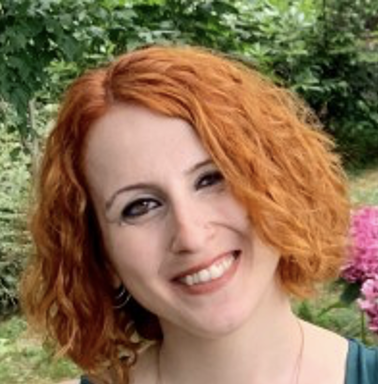
Gamze Sofuoğlu was born blind. She has been passionately struggling to change the perception of people towards disabilities, as well as the perception of disabled people towards their disabilities. She has been working on projects regarding accessibility, history and philosophy of disability, and rights of the disabled community ever since she discovered that disability was more a consequence of social barriers, than a body-related personal issue. Gamze graduated from the Department of Psychology in Boğaziçi University and made her Master’s degree on Cognitive Psychology at the same university. Her thesis was an investigation on the effect of disability perception on the temporal distribution in lifespan, content and recollective experiences in personally significant autobiographical memories. Gamze has been working at Turkcell, world’s first digital operator headquartered in Turkey, since 2014. She is the product manager of mobile applications and accessibility solutions for persons with disabilities such as audio description and indoor navigation technologies for blind people, instant Sign Language translator for deaf people and educational games for children with autism. The products she leads has a wide international recognition and a great number of awards from prestigious platforms such as GSMA, Meffys and MIT Technology Review. Between 2014 and 2016; she prepared and hosted a radio show on sensation and perception of blindness and disability issues with her friend Kürşat Ceylan, cofounder of Smart Cane WeWALK, on one of the most popular radio stations of Turkey. Her radio show won the best new radio show award in 2014 in Turkey. Gamze is writing articles on disability issues, mentoring blind children to support them to be more autonomous and confident in their lives, and providing consultancy for the projects on accessibility and disability. She strongly believes in an equal and barrier-free life. She will fight for the accessibility until the end of her life with the principle “Nothing about us without us!”
-
 C1. The role of governments and all stakeholders in the promotion of ICTs for development
C1. The role of governments and all stakeholders in the promotion of ICTs for development
-
 C3. Access to information and knowledge
C3. Access to information and knowledge
-
 C4. Capacity building
C4. Capacity building
-
 C6. Enabling environment
C6. Enabling environment
-
 C10. Ethical dimensions of the Information Society
C10. Ethical dimensions of the Information Society
-
 C11. International and regional cooperation
C11. International and regional cooperation
-
 Goal 3: Ensure healthy lives and promote well-being for all
Goal 3: Ensure healthy lives and promote well-being for all
-
 Goal 4: Ensure inclusive and equitable quality education and promote lifelong learning opportunities for all
Goal 4: Ensure inclusive and equitable quality education and promote lifelong learning opportunities for all
-
 Goal 8: Promote inclusive and sustainable economic growth, employment and decent work for all
Goal 8: Promote inclusive and sustainable economic growth, employment and decent work for all
-
 Goal 9: Build resilient infrastructure, promote sustainable industrialization and foster innovation
Goal 9: Build resilient infrastructure, promote sustainable industrialization and foster innovation
-
 Goal 10: Reduce inequality within and among countries
Goal 10: Reduce inequality within and among countries
-
 Goal 11: Make cities inclusive, safe, resilient and sustainable
Goal 11: Make cities inclusive, safe, resilient and sustainable
-
 Goal 16: Promote just, peaceful and inclusive societies
Goal 16: Promote just, peaceful and inclusive societies
-
 Goal 17: Revitalize the global partnership for sustainable development
Goal 17: Revitalize the global partnership for sustainable development
